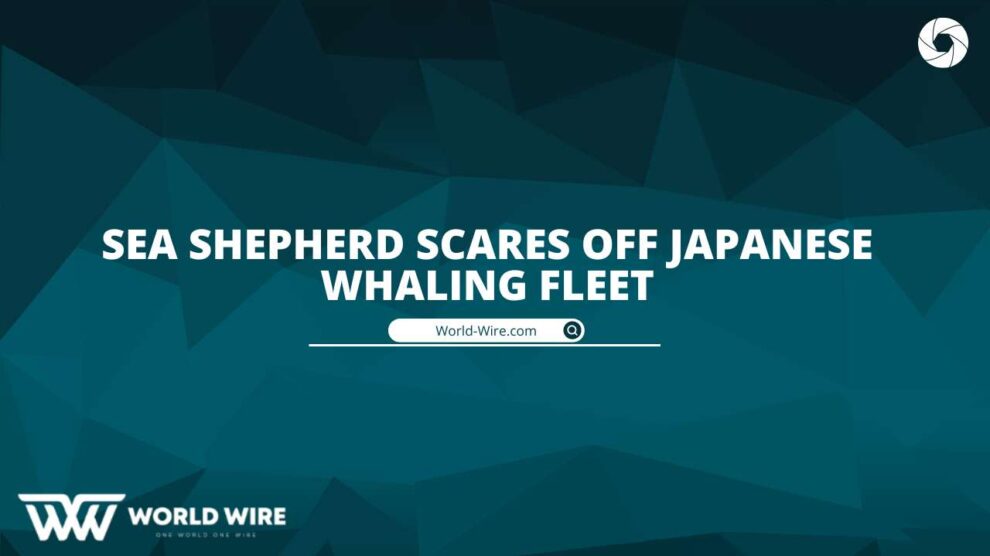Farley Mowat, a flagship vessel operated by the Sea Shepherd Conservation Society, reached the position where the Japanese whaling fleet was operating at 0800 hours on January 8, 2005 (Australian Western Standard Time). On December 9th, 2005, the Farley Mowat departed Melbourne, Australia, headed to the Antarctic Southern Ocean to stop Japanese whalers from killing whales, which began the conservation organization campaign to save whales.
Today, Sea Shepherd encountered the Japanese whale processing ship Nisshin Maru, which was accompanied by a large tanker, the Oriental Bluebird, and was waiting to see the harpoon vessels (catcher ships) return. A helicopter and three inflatables were dispatched by the Farley Mowat to catch up with the Nisshin Maru ahead of time. Once they were within one mile of the Japanese factory ship, the whalers began running north at full speed.
The Farley Mowat is currently pursuing. It is not as fast as the Nisshin Maru, but can keep the Japanese on the run for as long as the Farley Mowat can to stop them from moving dead whales from the harpoon vessels. When the catcher ships know they cannot reach their mother ship, they will not kill any whales.
During the first encounter with the Nisshin Maru, the Farley Mowat intercepted it for the first time. The whaling ship intentionally turned and headed towards the conservation ship during this confrontation. As the Nisshin Maru saw the deployment of the mooring line, captain Paul Watson, founder and president of Sea Shepherd, backed off to prevent its propeller from becoming fouled.
Many international laws and regulations are violated by the Japanese whaling operation, including:
-
It is illegal to violate the Southern Ocean Sanctuary.
-
Commercial whaling is unlawful under the moratorium imposed by the International Whaling Commission (IWC).
-
CITES protects fin and humpback whales from international trade. (They are targeting endangered fin and humpback whales).
-
Australian laws also protect the waters of the Australian Antarctic Territory from the Japanese.
-
Minke and fin whales, which they are hunting, have been banned from being processed by factory ships by the International Whaling Commission.
About Sea Shepherd Conservation Society
As a non-profit conservation organization founded in 1977, Sea Shepherd Conservation Society (SSCS) protects, conserves, and defends marine wildlife and ecosystems around the world. SSCS’s website, www.seashepherd.org, provides information about their research, direct action, public education and outreach programs, and how they have been committed to preventing pirate whaling, poaching, shark finning, sealing, habitat destruction, and other violations of established ocean protection laws for decades.
He is the cofounder of Greenpeace Foundation and the founder of Sea Shepherd, both well known and respected organizations dealing with environmental issues.







Add Comment